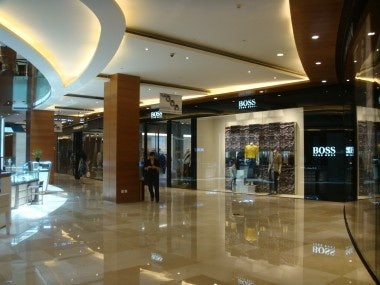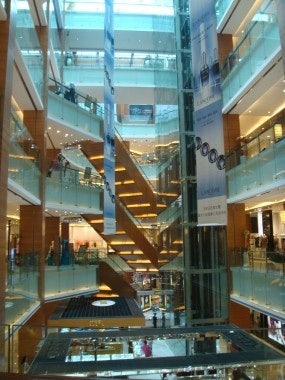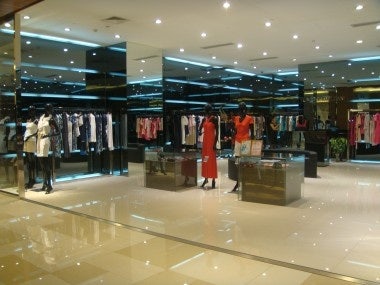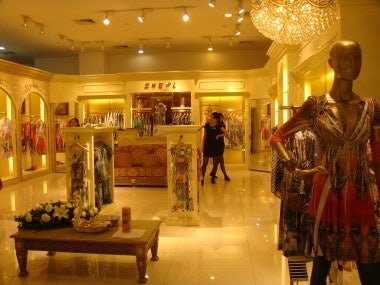Chengdu One Of China's Fastest-Growing Luxury Markets#

Luxury shopping mall in Chengdu
Arguably the most important economic, cultural and fashion hub in western China, the luxury market in Chengdu has taken off in recent years, with the city regularly cited as a key new market for top high-end brands. Last year, Louis Vuitton registered record sales of $138 million in the city, while Cartier generated more revenue in Chengdu than in any other city in China. This August, at a fashion event in Chengdu, Liu Ruiming, editor-in-chief of Forbes China, projected that luxury sales in Chengdu will soon reach 10 billion yuan (US$1.57 billion), making it one of China's largest single high-end markets. But, sales figures and (at times breathless) media coverage aside, what's actually happening on the ground in Chengdu?
To get a better sense of the trends currently shaping this vast metropolitan area, home to over 14 million people, Jing Daily analyst Betty Chen recently spoke to an operations manager of a major global luxury brand -- who, due to company policy, spoke on the condition of anonymity -- about the current state of the Chengdu luxury market, the buying behavior of locals, the service level of luxury professionals, and more. Interview translated from the original Mandarin Chinese.
Jing Daily (JD): What would you say is the current state of the Chengdu luxury market?#
Operations Manager (OM):#
The urban culture of Chengdu is more open, which originally attracted several foreign high-end malls, such as Pacific Department Store. Compared to my previous working experience in other cities, I'd say Chengdu is way more open, so many top-tier brands have chosen to enter the city, especially early on when they consider expanding into second-tier markets.
Chengdu's Maison Mode can be considered the city's first luxury department store, since it introduced lots of world-class brands to the city. Right now, Hong Kong's Wharf Holdings is building the International Financial Center (IFC) here, and I believe IFC Chengdu will attract even more top-tier brands. But there are other examples of the city's importance to luxury brands. Hermès chose Chengdu to open its first boutique in western China, and Chanel chose Far Eastern Pacific Department Store for its first store in Chengdu.
As I said, the luxury market is growing very quickly here, due to the open culture of the city. As far as I know, many high-end brands have done very well in Chengdu, and a few of them are already planning to open a second store here. I think Chengdu's luxury market is ranked among the top three or top five in the nation.

Luxury shopping mall in Chengdu
JD: What kind of impact do you think competition among luxury brands and shopping malls will have on the market?#
OM:#
As luxury brands compete, luxury shopping malls will compete as well. Foreign luxury shopping malls will also bring more premium brands to the city. The pressure on local shopping malls will be relatively high, so they'll have to constantly adjust their brand portfolios. Although competition is becoming increasingly fierce, the luxury market in Chengdu should be getting better and better. The more stores open, the bigger the market will be.
JD: In general, how do you perceive attitudes towards luxury among Chinese consumers?#
OM:#
Generally speaking, I think their attitude towards shopping is relatively impulsive. It will take some time to enhance their brand awareness. Although some top brands sell well, they don't adequately educate their customers and enhance brand understanding. This is especially true for brand agents -- when they start to sell luxury brands, they totally disregard the concept of brand education, so many customers have no sense of the deeper concepts or pedigrees conveyed by the brands.
JD: Who would you say are the main luxury consumers in Chengdu?#
OM:#
The luxury consumer base in Chengdu can range from members of the "post-9os generation" to people over the age of 50. Some young consumers shop with their parents, and others come with their friends. Now, some top-tier brands are very diverse in terms of product lines and styles, and they try to attract customers of all ages. For example, some brands want to appeal to parents as well as their children.
JD: Can you say a little bit about the shopping behavior of Chengdu consumers?#
OM:#
Currently, most new customers still prefer to buy products they're familiar with. For example, some classic styles sell very well. But I think the "post-80s/90s" shoppers may accept new things much easier than their older counterparts, although the latter group accounts for a larger proportion of luxury consumption.
To better educate our customers about the diversity of our product lines, we now try to display fewer classic styles.

Luxury shopping mall in Chengdu
JD: How can domestic Chinese high-end brands compete with foreign competitors?#
OM:#
Some domestic companies want to create luxury brands, so in attempt to enhance brand awareness among affluent consumers they try to open stores close to top global brands like Louis Vuitton, Gucci, and others. Although these domestic high-end brands sometimes sell well, they're still inferior to their foreign counterparts in terms of operations, CRM, etc.
JD: While living standards in Chengdu have gradually increased, there's still a gap here relative to top-tier cities like Beijing and Shanghai. Do you think luxury consumers in Chengdu are more price-sensitive?#
OM:#
In my opinion, consumers who are able to afford luxury seldom complain about prices. They should have prepared themselves psychologically before hitting the mall, and have a rough sense of what they expect to spend. Moreover, the products they like to buy should be familiar to their friends and family. However, some customers have been known to complain about prices in Chengdu after buying similar items at a lower price in Hong Kong or overseas.
Now, Sanya in Hainan has launched a duty-free luxury shopping program, which gives consumers a benchmark from which they can compare prices domestically. Also, some customers come to stores here to compare styles and sizes locally before shopping abroad.
JD: How do you feel about consumers here? What pushes someone to shop locally?#
OM:#
In Chengdu, many luxury brands put a lot of effort into retaining customers. Lots of brands have regular consumers who often spend a certain amount of money on particular products. In terms of what pushes them to buy locally, some buy for themselves, and others buy as gifts. The proportion of luxury items bought as gifts has increased in recent years.

High-end brands are flocking to Chengdu luxury malls
JD: What are some of the major challenges you see in the Chengdu luxury market?#
OM:#
Aside from fierce competition, I think most top-tier brands do pretty well in Chengdu. The staff may be under-trained, generally speaking, but shoppers still flock to stores.
JD: What kind of qualities do you think luxury professionals need to embrace here?#
OM:#
People who have a certain amount of work experience in the luxury industry, as well as an overseas education or work background, are very sought-after luxury talent among top luxury brands. China's luxury market is growing rapidly, and sometimes the training process seems a little flimsy. Many brands want to hire people who can immediately handle the work.
I think a good luxury professional needs to have a good amount of work experience. This can't simply be gained through some luxury management courses or programs.